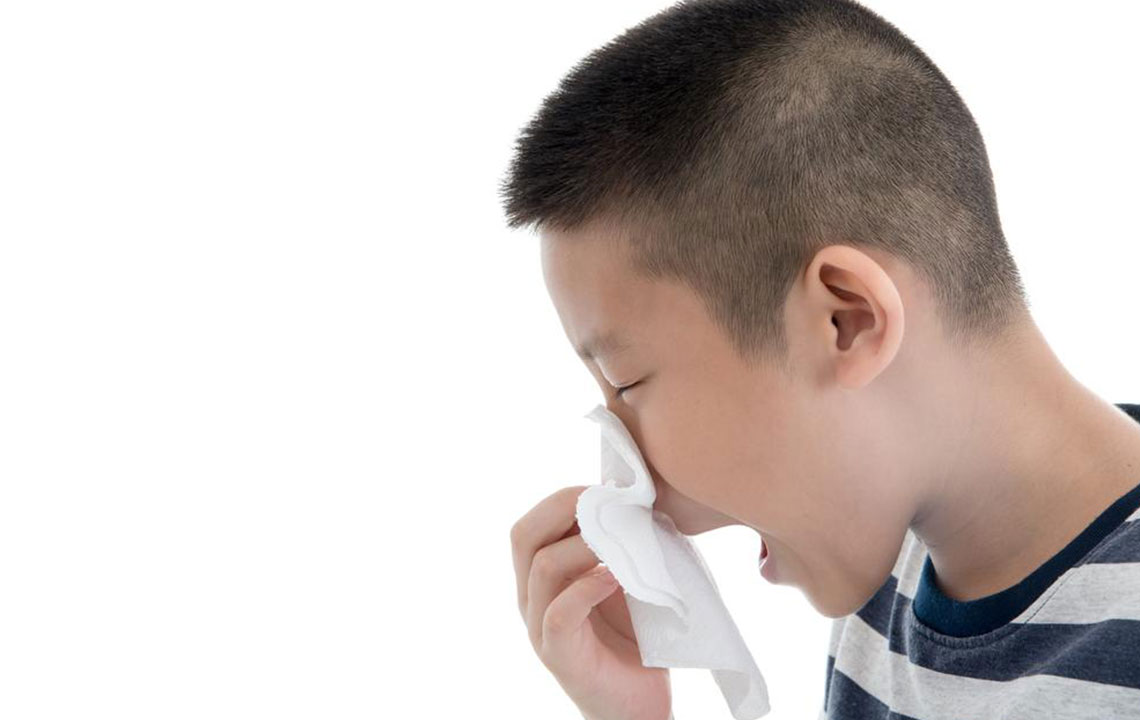Comprehensive Guide to Effective Sinus Relief Strategies and Medications
This comprehensive guide covers the causes, types, and effective treatments for sinusitis. It emphasizes early diagnosis, natural remedies like nasal irrigation and steam inhalation, and the use of over-the-counter medications. Understanding the differences between acute, chronic, and recurrent sinusitis helps in choosing appropriate therapies. The article highlights the importance of consulting healthcare professionals when symptoms persist or worsen, and offers practical advice for managing sinus health naturally and medically to improve quality of life.

Ultimate Guide to Understanding Sinus Problems and Managing Sinus Relief
Understanding Sinus Health and Available Relief Options
The sinus cavities are air-filled spaces located within the bones of the face and skull, surrounding the nasal passages. These cavities are lined with mucous membranes that produce mucus to trap dirt, bacteria, and other particles. When these sinuses become inflamed or infected—a condition known as sinusitis—mucus drainage can be blocked, leading to a buildup that causes pain, pressure, and discomfort. Sinus issues can be triggered by various factors, including allergies, infections, environmental irritants, and structural abnormalities. Proper diagnosis and tailored treatment approaches are crucial for effective relief and long-term health.
Types of Sinusitis and Their Characteristics
Sinus infections are generally classified into three main categories, each with distinct causes, symptoms, and treatment considerations:
Acute Sinusitis
This type occurs suddenly and typically lasts less than four weeks. It is often caused by viral infections such as the common cold, but bacterial infections can also be culprits. Symptoms include intense facial pain or pressure, nasal congestion, thick nasal discharge, and sometimes fever. Immediate treatment can help prevent progression to more severe or chronic conditions.
Chronic Sinusitis
Persistent inflammation lasting longer than 12 weeks, often despite treatment, characterizes chronic sinusitis. Causes include allergies, nasal polyps, structural anomalies, or ongoing infections. Symptoms tend to be milder but more persistent—they include nasal congestion, ongoing headaches, post-nasal drip, and a decreased sense of smell. Chronic sinusitis significantly impacts quality of life and requires a comprehensive treatment approach.
Recurrent Sinusitis
This form involves multiple episodes of sinus infections over time, separated by periods of normal sinus health. Recurrent cases may be linked to underlying issues such as allergies or immune system deficiencies that need addressing for effective management.
Causes and Risk Factors for Sinus Issues
Several factors contribute to the development of sinus problems:
Unmanaged allergies, especially to pollen, dust mites, mold, and pet dander
Bacterial or fungal infections
Nasal obstructions caused by polyps, deviated septum, or growths
Environmental pollutants and irritants that lead to inflammation
Structural abnormalities within the nasal passages that hinder mucus drainage
Weakened immune function that makes the body more susceptible to infections
Environmental factors such as exposure to cigarette smoke, pollution, and sudden weather changes can also irritate sinuses and exacerbate existing issues.
Effective Strategies for Sinusitis Treatment
Addressing sinus problems effectively involves early diagnosis and a multi-faceted treatment plan. Many cases, particularly viral infections, improve with supportive remedies, while bacterial or fungal sinusitis might require targeted medications or surgery. Natural remedies are widely used to alleviate symptoms and promote healing without pharmaceutical intervention.
Natural and Home Remedies for Sinus Relief
Saline Nasal Irrigation
Using saline sprays or neti pots to rinse the nasal passages helps clear mucus, reduce congestion, and promote sinus drainage. Proper technique and sterile water are essential to prevent infections.
Bromelain Supplements
This enzyme, naturally found in pineapples, possesses anti-inflammatory properties that can reduce swelling in nasal tissues. Always consult your healthcare provider before incorporating supplements into your routine.
Steam Inhalation Therapy
Breathing in steam from hot water helps soften mucus, relieve nasal congestion, and soothe inflamed sinuses. Combining steam with essential oils like eucalyptus can enhance relief.
Maintaining Adequate Hydration
Drinking plenty of water thins mucus, promoting easier drainage. Avoiding caffeinated and alcoholic beverages helps prevent dehydration, which can worsen sinus symptoms.
Eating Spicy Foods
Consuming spicy foods containing ingredients like chili peppers, mustard, or horseradish stimulates mucus flow and naturally opens nasal passages.
Reducing Indoor Allergens
Keeping living spaces clean, using HEPA air purifiers, and washing bedding regularly minimizes exposure to allergens. If pet allergies are severe, limiting contact can improve symptoms.
Using Humidifiers
Adding moisture to the air prevents nasal dryness, dilates mucus, and reduces sinus pressure. Ensuring the humidifier is clean prevents mold growth and airborne spores.
Warm Compress Application
Applying warm compresses over the sinuses can ease pain, reduce swelling, and promote sinus drainage.
Avoiding Unnecessary Antibiotics
Unless bacterial infection is confirmed, delaying antibiotic use can allow the body to recover naturally and helps prevent antibiotic resistance.
Choosing Appropriate Sinus Medications
Over-the-counter options are commonly used for symptom relief, but selecting the right medication depends on the sinus condition’s cause and severity:
Antibiotics
Effective primarily for bacterial sinusitis, antibiotics such as amoxicillin can shorten illness duration. It's vital to complete the prescribed course and avoid unnecessary use to prevent resistance.
Pain Relievers
Nonsteroidal anti-inflammatory drugs (NSAIDs) like ibuprofen or acetaminophen can alleviate facial pain and headaches. Follow dosage instructions carefully to avoid adverse effects.
Nasal Sprays and Gels
Decongestant sprays can quickly reduce nasal swelling—use these as directed to prevent rebound congestion. Steroid nasal sprays decrease inflammation long-term, especially in chronic cases. Mucolytics like Guaifenesin help thin mucus, aiding drainage.
Seeking Medical Advice for Severe or Persistent Symptoms
If symptoms persist beyond typical durations, worsen, or include high fever, facial swelling, or vision changes, consult an ENT specialist. Diagnostic tools like a CT scan can help identify structural anomalies requiring surgical correction.
Comprehending sinus conditions and adopting effective treatment strategies, including natural remedies and appropriate medications, can significantly enhance quality of life. Early intervention and personalized care are key to managing sinus issues successfully, preventing complications, and promoting overall sinus health.





